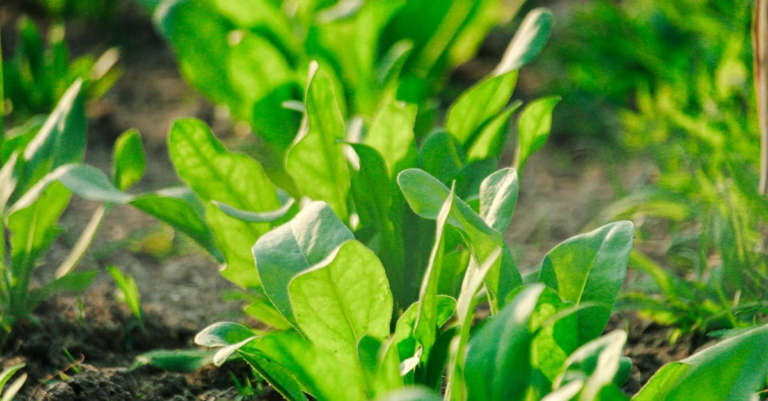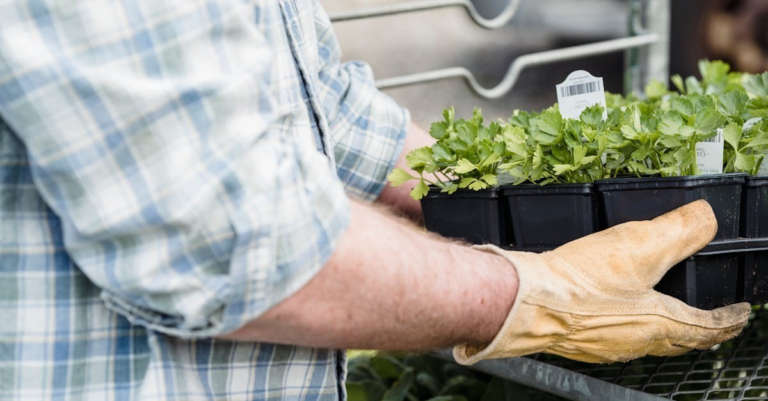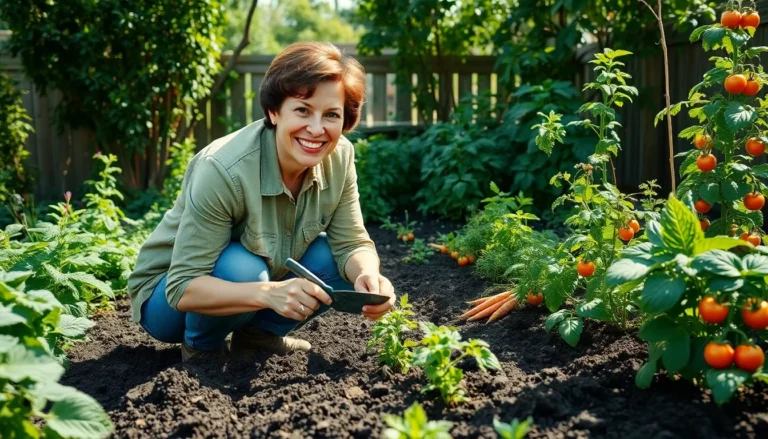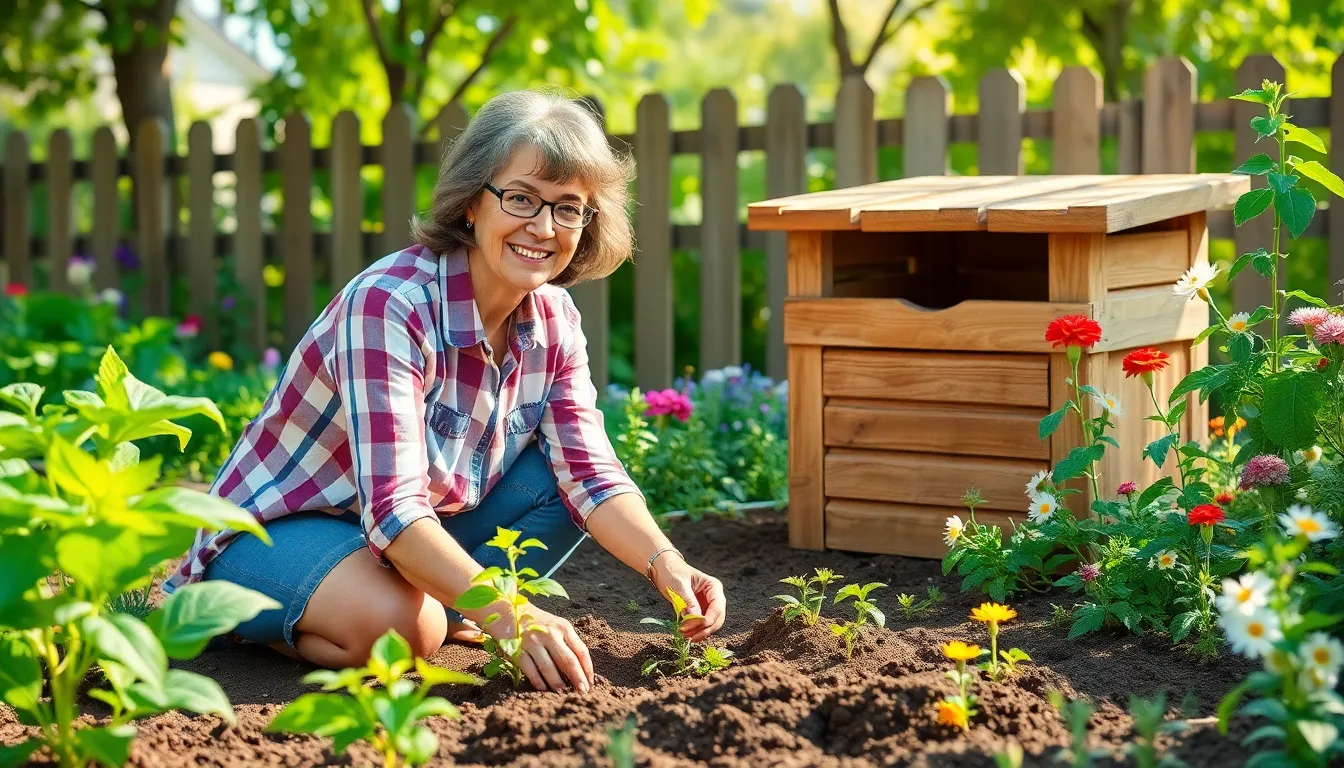
Organic Gardening Solutions: Transform Your Garden and Boost Your Well-Being
Imagine stepping into your garden and being greeted by vibrant colors, the sweet scent of fresh herbs, and the knowledge that everything you’re growing is free from harmful chemicals. Organic gardening solutions not only transform your backyard into a lush paradise but also promote a healthier planet. Who knew that getting your hands dirty could feel so good?
Organic Gardening Solutions
Organic gardening solutions harness natural methods and materials to cultivate plants without harmful chemicals. Home gardeners often choose organic practices to enhance soil health, promote biodiversity, and produce nutritious food. Composting serves as a fundamental practice, enriching soil with organic matter.
Mulching plays a key role by retaining moisture, suppressing weeds, and regulating soil temperature. Natural pest control methods, such as using beneficial insects or introducing plant companions, help fend off unwanted pests. Crop rotation benefits soil health by preventing nutrient depletion and disrupting pest cycles.
Organic fertilizers, derived from natural sources like manure or compost tea, supply essential nutrients. Each solution not only supports plant growth but also fosters a more resilient ecosystem. Cover crops contribute to soil fertility and prevent erosion, further enhancing garden sustainability.
Watering techniques, such as drip irrigation, allow for efficient water use while minimizing waste. Sustainable practices create inviting habitats for wildlife, thus establishing a balanced environment. Implementing these organic solutions leads to healthier plants and improves the overall ecosystem.
Community resources, such as local gardening clubs or online forums, provide valuable support for organic gardeners. Sharing experiences and tips enhances collective knowledge and success rates. With these solutions in mind, individuals can embark on a rewarding journey toward organic gardening and create thriving landscapes.
Benefits of Organic Gardening
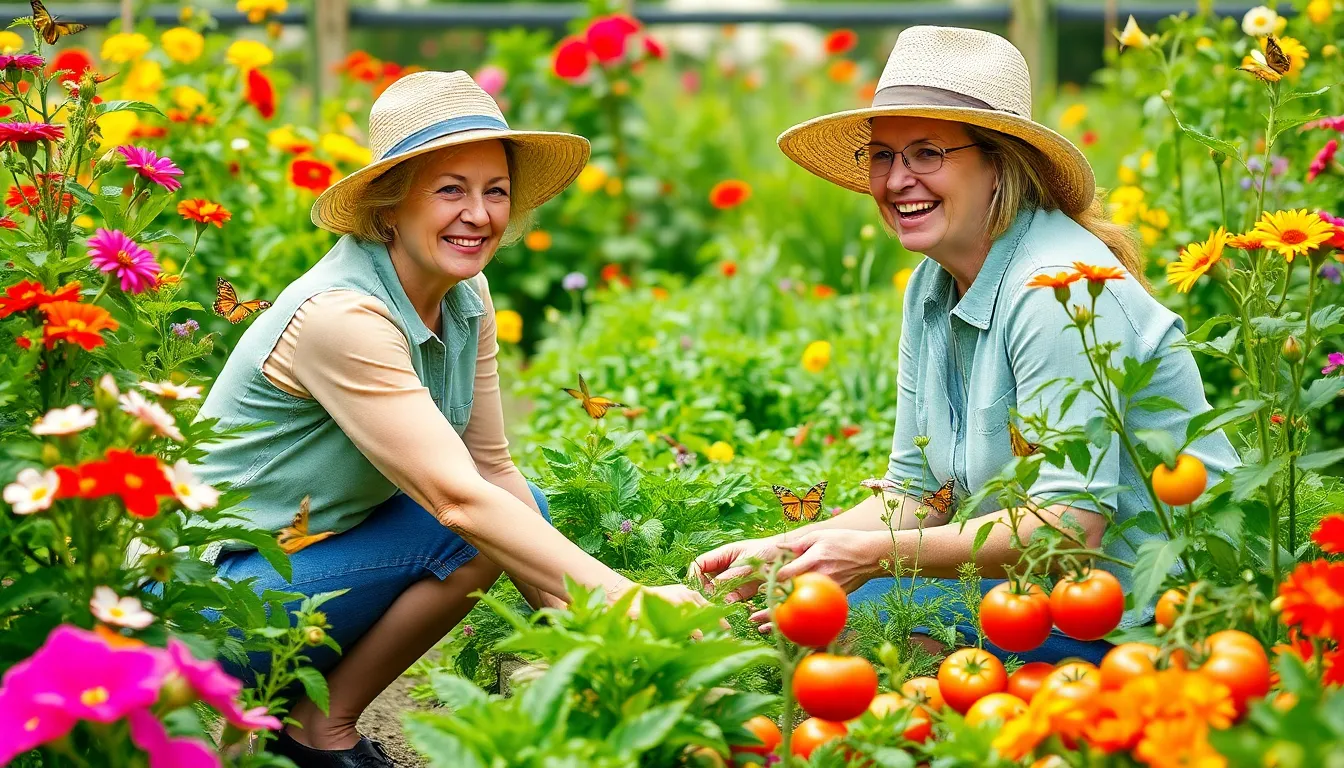
Organic gardening offers numerous advantages, from improving personal well-being to enhancing environmental health. Engaging in these practices transforms gardens into vibrant spaces that contribute positively to ecosystems.
Environmental Impact
Organic gardening reduces pollution by avoiding synthetic chemicals. It fosters biodiversity, providing habitats for beneficial organisms. Soil health improves through natural composting, which enhances nutrient content. Water conservation practices, such as drip irrigation, minimize waste. These environmentally friendly methods help combat soil erosion and promote sustainable land use. Traditional gardening often depletes resources; organic gardening actively protects them.
Health Benefits
Organic gardening promotes healthier eating by providing fresh produce free from harmful pesticides. Nutritionally rich fruits and vegetables support better overall health. Engaging in gardening activities also encourages physical exercise, which boosts fitness levels. Mental well-being improves through connecting with nature, reducing stress. Community engagement in gardening fosters strong social networks, providing emotional support. These health benefits underscore organic gardening’s holistic approach to wellness.
Essential Components of Organic Gardening
Organic gardening relies heavily on specific components that enhance sustainability and health in the garden. Two vital areas to focus on include soil health and natural pest control methods.
Soil Health and Fertility
Soil health remains fundamental in organic gardening. Organic matter, such as compost and well-rotted manure, enriches soil fertility and supports microbial life. Composting materials reduce waste while boosting nutrient levels. Cover crops, like clover or rye, improve soil structure and prevent erosion. Amendments like bone meal or green manure enhance nutrient availability. Testing soil pH and nutrient content ensures that plants receive necessary elements. Healthy soil promotes robust root systems, allowing plants to better absorb water and nutrients.
Natural Pest Control Methods
Natural pest control methods play a crucial role in maintaining an organic garden. Integrating beneficial insects, such as ladybugs or lacewings, helps manage pest populations efficiently. Companion planting deters pests by using specific plant combinations to repel undesirable insects. Neem oil serves as a natural pesticide, providing effective protection without harming beneficial organisms. Homemade remedies, like garlic or pepper sprays, deter pests when applied directly. Regular monitoring and identifying pest issues early enables prompt action and reduces potential damage. This holistic approach fosters a balanced ecosystem while protecting plants effectively.
Popular Organic Gardening Techniques
Organic gardening thrives on diverse techniques that promote healthy plants and sustainable practices. Two popular methods include companion planting and crop rotation.
Companion Planting
Companion planting involves pairing different plants to enhance growth and deter pests. For instance, marigolds alongside vegetables naturally repel harmful insects. Herbs such as basil planted near tomatoes can improve flavor and growth. The combination of plants creates a balanced ecosystem. This method increases biodiversity and reduces reliance on chemical pest control.
Crop Rotation
Crop rotation prevents soil depletion and controls pests and diseases. By alternating crops in a specific sequence, gardeners can restore nutrients. For example, legumes fix nitrogen in the soil, benefiting subsequent crops like leafy greens. This method limits the buildup of pests associated with specific crops. Implementing crop rotation leads to healthier soils and improved yields over time.
Resources for Organic Gardening
Numerous resources exist to support organic gardening efforts, enriching knowledge and practice.
Books and Guides
Books serve as invaluable tools for gardeners seeking to deepen their understanding. “The New Organic Grower” by Eliot Coleman covers techniques for successful organic farming. “Rodale’s Ultimate Encyclopedia of Organic Gardening” compiles comprehensive advice on a variety of topics, including soil health and pest management. Guides often include diagrams and illustrations, making learning easier. Numerous local universities also publish extensions that focus on organic gardening practices, tailored to specific climate conditions.
Online Communities and Forums
Online platforms foster community engagement among organic gardeners. Websites like Reddit feature dedicated subreddits for sharing tips and experiences. Social media groups on Facebook connect individuals with similar interests, creating vibrant discussions. Forums provide spaces for asking questions and receiving advice from experienced gardeners. Local organizations often host webinars and virtual workshops that enhance learning. Available resources on these platforms enhance knowledge sharing and support among organic gardening enthusiasts.
Conclusion
Embracing organic gardening solutions not only cultivates a thriving garden but also nurtures the environment and personal well-being. By utilizing natural methods and materials, gardeners can create sustainable ecosystems that benefit plants, wildlife, and communities alike.
The journey into organic gardening is filled with opportunities for learning and growth. With the right techniques and resources, anyone can transform their gardening experience into a rewarding endeavor.
As individuals connect with nature and each other through this practice, they contribute to a healthier planet and enhance their own quality of life. Organic gardening stands as a testament to the power of nature, offering a fulfilling way to engage with the world around us.

